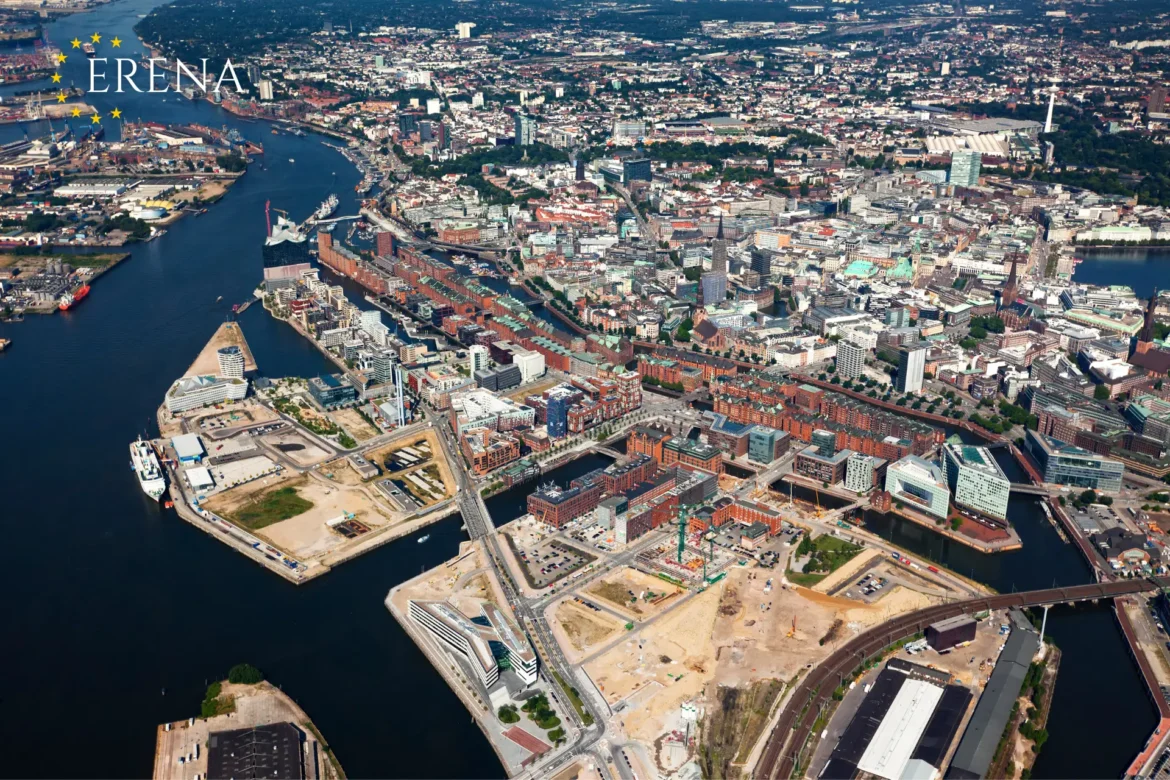Overview of the Rental Market in Hamburg
Hamburg is one of Germany’s largest cities, attracting thousands of people each year due to its high standard of living, developed infrastructure, economic opportunities, and diverse educational institutions. However, the high demand for housing makes the rental market competitive, and prices can be quite steep. To find the most advantageous option, it is essential to consider the district, type of housing, utility costs, and additional amenities. This overview will examine which apartments are more profitable to rent in Hamburg in 2025.
Hamburg Districts: Where is it Best to Rent?
The district is one of the key factors influencing rental prices and comfort levels. Hamburg offers several main zones suitable for different categories of tenants.
1. Central Districts (Innenstadt, Altstadt, St. Georg, Neustadt)
These districts are ideal for those who want to live in the heart of the city, within walking distance of business centers, restaurants, shops, and attractions.
• Pros: well-developed infrastructure, excellent transport accessibility, proximity to offices and cultural sites.
• Cons: high rental costs, small apartment sizes, limited parking spaces.
• Average rental price: from €1,500 for a one-bedroom apartment.
2. Prestigious Districts (Eppendorf, Winterhude, Harvestehude, Blankenese)
Suitable for families, affluent tenants, and expatriates who appreciate tranquility and a high level of comfort.
• Pros: prestige, numerous green areas, spacious apartments.
• Cons: high rental prices, limited youth-oriented infrastructure.
• Average rental price: from €1,800 for a one-bedroom apartment.
3. Youth and Student Districts (Altona, Sternschanze, St. Pauli, Eimsbüttel)
Popular among students, creative professionals, and young families.
• Pros: affordable prices, vibrant nightlife, convenient transport connections.
• Cons: noisy streets, high population density.
• Average rental price: from €1,200 for a one-bedroom apartment.
4. More Affordable Districts (Wandsbek, Bergedorf, Harburg, Barmbek)
These districts are suitable for those looking to save on rent without sacrificing comfort.
• Pros: affordable prices, larger apartments, well-developed transport system.
• Cons: farther from the city center.
• Average rental price: from €900 for a one-bedroom apartment.
Which Type of Apartment is More Profitable to Rent?
Tenants can choose from various types of housing depending on their needs and budget.
1. Studios and One-Bedroom Apartments
Ideal for students and single occupants.
• Average price: €1,000 – €1,500.
2. Two-Bedroom Apartments
Often chosen by couples and young families.
• Average price: €1,500 – €2,000.
3. Three-Bedroom Apartments and Larger
Best suited for large families or shared rentals.
• Average price: €2,000 – €3,500.
Factors Influencing Rental Prices
The cost of renting an apartment in Hamburg depends on several key factors:
1. Location – central areas are always more expensive.
2. Year of Construction – newly built apartments with modern finishes are pricier.
3. Furnishing – furnished apartments usually cost more.
4. Utility Costs – typically range from €150 to €300 per month.
How to Find the Most Advantageous Rental Option?
1. Use specialized websites (Immobilienscout24, WG-Gesucht, eBay Kleinanzeigen).
2. Consider areas near metro stations – they are cheaper than the center but still convenient.
3. Negotiate long-term rental agreements – landlords may offer discounts.
4. Look out for promotions in new buildings – developers sometimes provide special offers.
Tips to Reduce Rental Expenses
• Share an apartment with roommates.
• Consider renting an unfurnished property – this can lower costs.
• Pay attention to utility costs – some low-rent apartments may have high heating expenses.
• Sign long-term leases – landlords may provide discounts for extended contracts.
Hamburg offers a wide range of rental options, and the choice depends on the tenant’s budget, lifestyle, and preferences. Youth and students will find Altona and Sternschanze most suitable, while families should consider Wandsbek and Harburg. If the budget is limited, renting in more remote districts may be the best option, provided good transport links are available. The key to finding a great deal is thorough market research, comparing offers, and considering all factors before signing a lease agreement.
Hamburg – Which Apartments Are More Profitable to Rent?
921
previous post

